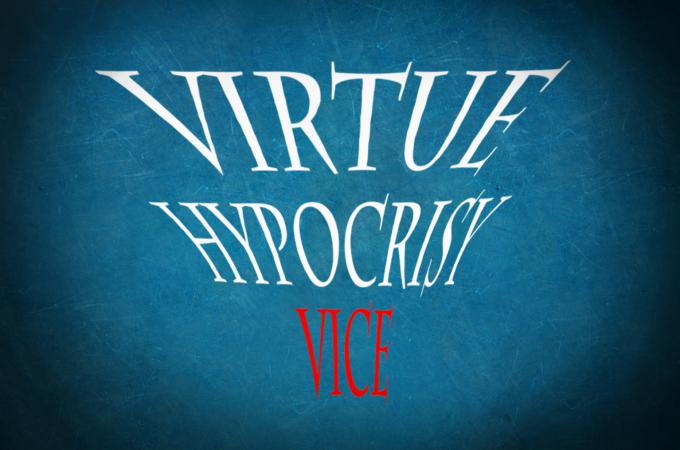The sex abuse crisis and Church teaching
Every one of us struggles and is weak; but what matters is how we deal with our weakness.
Let's take something trivial and therefore inoffensive. Consider the principle, "Do not eat between meals." (It does not matter if it is true: it merely need be representative.) Suppose someone resolves to follow that principle.
First, we know he is more likely to fail precisely because he affirmed the principle. As St. Paul says, the statement of the Law reveals the presence of another law in our members. This sad truth becomes apparent to us, again, every January and every Lent.
But there are various ways to respond to our failure. The first is humility. We acknowledge we are weak; we ask God for help; we get up and try again, despite multiple falls; we have confidence (faith, really) that good is coming from it, despite little evidence of improvement.
In some cases, indeed, if we carry on with such humility, we actually do change so that the "law," which at first seemed external, has become second nature: there are some people who never eat between meals and find it easy to do so, just as there have been times in our lives when we were like that.
That stable condition of following a good principle as if by second nature is what the ancients called "virtue."
A second response is hypocrisy. This is when I fail to keep the principle, but I am not honest about failing: I hide it from myself and from others. There is at first a fine line between not wanting to scandalize others unnecessarily, and hypocrisy. As Our Lord said, hypocrisy is a leaven, that is, it infiltrates and works its power over everything imperceptibly. Someone who at first with good intentions wanted to preserve his reputation, or the honor of his position, may end up becoming an "empty tomb" of a hypocrite. The end stage of hypocrisy is when someone pursues what is bad wantonly, but now uses his position purely as a cover, to achieve his evil purposes more effectively.
Perhaps you now see an application to the sex abuse crisis. It seems likely there are clerics who struggled against weakness and overcame it, and who perhaps are even truly virtuous in old age; whereas others have remained the most despicable hypocrites. As we cannot discern character easily from a distance, if at all, we cannot tell except through proven, recent action (typically not available to us) which holds of which.
But do not misunderstand me. I do not say that if someone conquered a weakness and became virtuous he is not accountable for what he did earlier out of weakness. In general, sexual abuse from its enormity is a crime like murder, which cannot be dismissed as something that happened in the past long ago. There needs always be a reckoning. In olden times someone who committed such a crime could not be rehabilitated without a long period of public penance. In our day -- as we are more harsh, not less so -- these crimes are taken simply to disqualify someone permanently from holding any position of authority: see Moonves, Cosby, Weinstein.
A third possible response to weakness is what technically is called "vice." Long ago, Aristotle said that the mark of vice was that someone stops struggling against weakness, gives up on the right principle, and even embraces a contrary principle, which then, through long patterns of action, becomes second nature to him.
We may use "do not eat between meals" as an illustration. After long struggles trying to keep this principle, and failing, and perhaps feeling tremendous shame, and wanting to hide that fact from others, because others do not seem to have the same struggles, someone might just say -- "To heck with that idea. There is nothing wrong with eating between meals. I was deceived to think so. Others were keeping me down. It is something within me, to want to eat between meals. That's who I am." Who knows, but obesity might even become something celebrated. It is its own way of life, after all; it has its unique contribution to make; and so on.
Do not misunderstand this term "vice." It should not conjure up images of criminals in orange jumpsuits or shady characters lurking in dark alleys wearing trench coats. In our time we like to exaggerate evils so that we keep them far from us -- Hitler is evil, we say, and racists. Understand vice, rather, to be simply what I said: to give up on the struggle to follow the correct principle and possibly to assert, instead, as right an incorrect principle (add: and to become such that that contrary principle has become a second nature).
But then here's my last point, about the sex abuse crisis. It is raised by the Vigano testimony. The correct principle in sexual matters (I do not say, "for Catholics," as it is natural law) is stated by "Humanae vitae": no sex outside of marriage, and no inherently non-procreative sex acts. Now are there bishops who fall into the last type I described -- they are not weak, nor reformed, nor hypocrites, but they are in the technical sense, "vicious"? If so, have they been laboring, as for something right (in their eyes), a change in Church teaching, to reject the correct principle? Many had thought they could see that that was so: the testimony of Vigano gave substance to those worries.
- Michael Pakaluk is Professor of Ethics and Social Philosophy in the Busch School of Business at The Catholic University of America. His book on the gospel of Mark, ‘‘The Memoirs of St. Peter,’’ is available from Regnery Gateway.



















